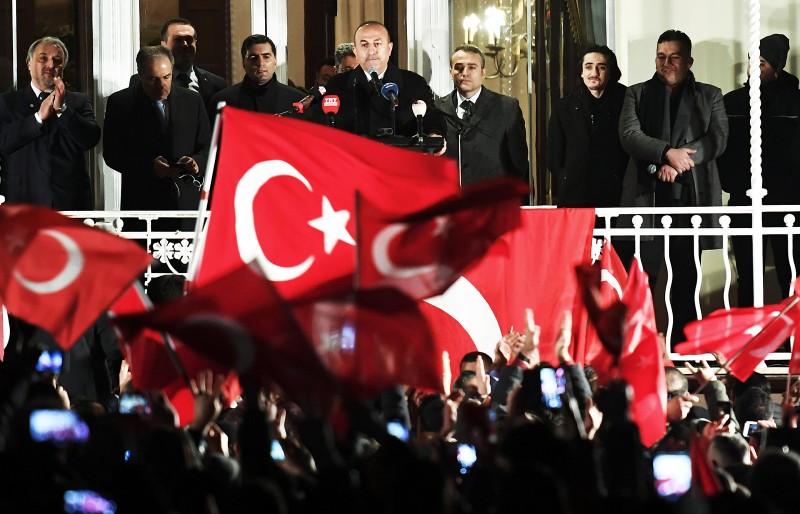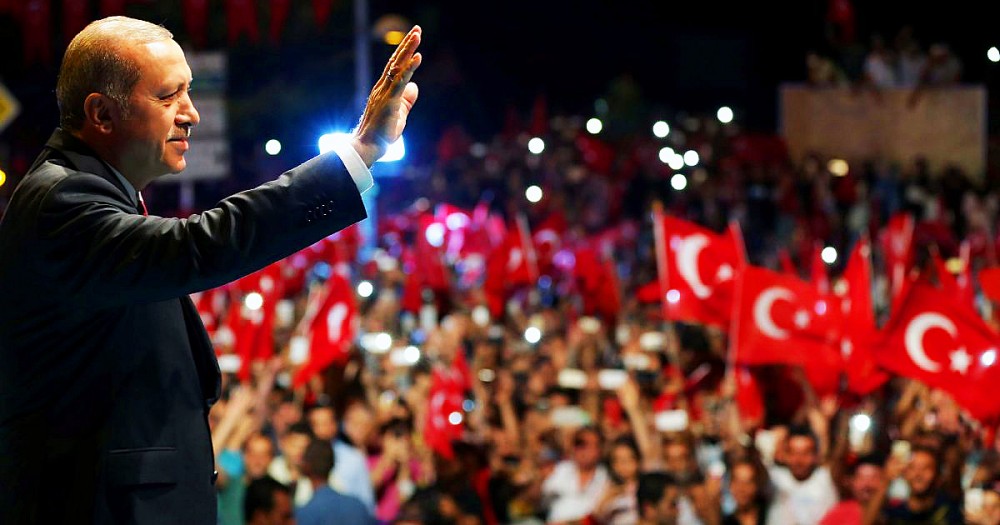
Turkey and the (merciless) Sultan’s mercy
Political road of Recep Tayyip Erdogan, whose conservative Party of Justice and Development (AKP) has ruled Turkey since 2002, has reached a level of disturbing authoritarianism that threatens to destroy the democratic and secular traditions of the Republic and take it back to the dark times of medieval past. Erdogan started as a reformist who made a real economic boom in Turkey soon after the first of his three prime ministerial mandates. His political popularity rose with every coming election, but time exposed his insatiable ambition for more power.At home, he gained followers by the demonizing opponents, completely unwilling to hear any criticism at his expense. His credo is that chaos opens up chances. With the increasing anti-elitist, conservative and nationalist world-leaders, he was viewed as an inspiring role model.He initiated the Islamization of the country, subverted the army, security services and the judiciary to himself. Even in the country of imperfect democracy, Turkish judiciary used to enjoy respect in the world. He showed the same aspiration towards academia and the media. The silence with which great democracies watched as one of the Middle Eastern democracies was sliding into authoritarianism was deafening.
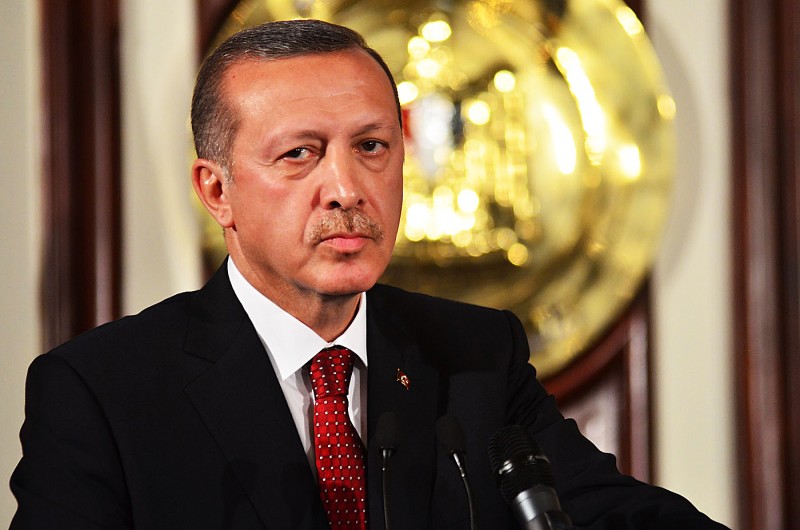
Erdogan used the failed Coup in 2016 to deal with all those who opposed his absolutist rule. The April referendum was used for the change of the constitution and institutionalization of the Presidential system. Erdogan is confident that in 2023, as head of state, he will monitor the hundredth anniversary celebration of the Republic, even though he is doing everything in his power to bury the legacy of the founder of modern Turkey, Mustafa Kemal Ataturk. Today’s Turkey's looks less and less like the country that the Father of the Turks established on the ruins of the Ottoman Empire in 1923 when he proclaimed Turkey a republic. The country is now increasingly moving away from Atatürk's vision of a European Turkey. "Is Turkey a democracy?" asks a columnist for the respected magazine "Foreign Policy". [1]
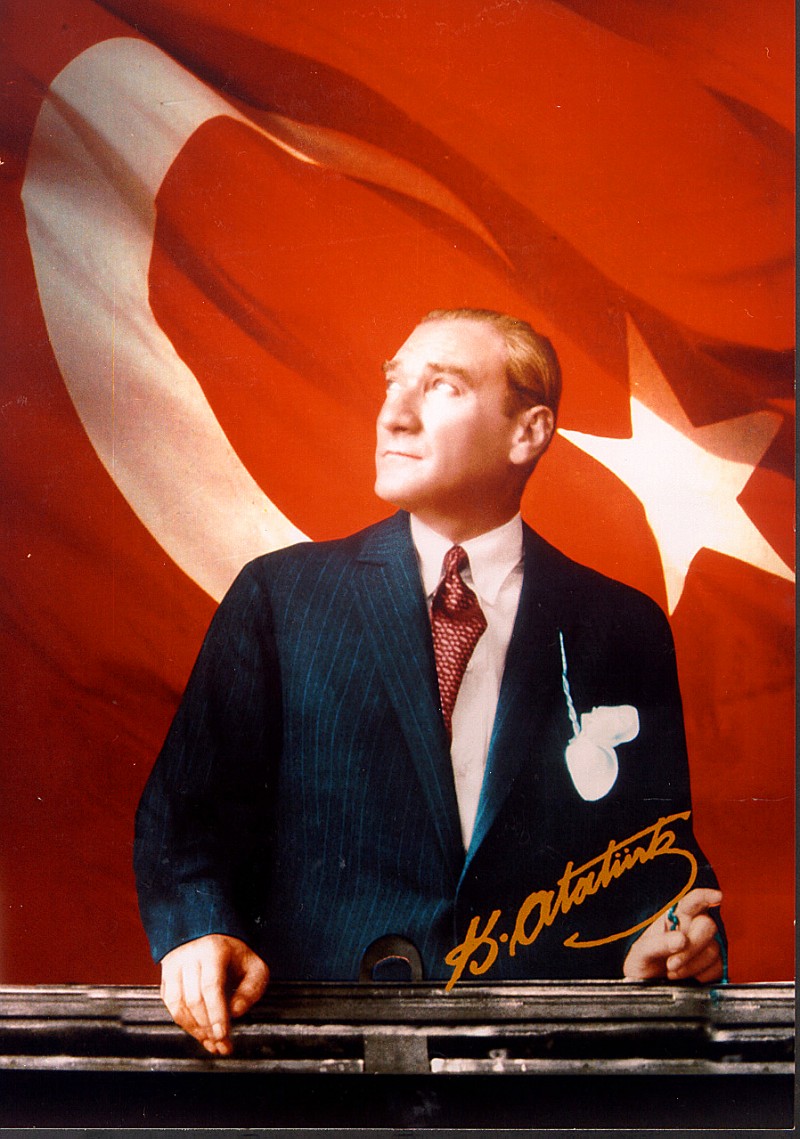
The new sultan, as they call him, is risking all the spectacular results achieved in the economy, and will not behold the silent discontent of big business circles who are denied many foreign markets, while the Western investors are slowly becoming wary of investing. Meanwhile, three years since he was elected a president, he secured himself an absolute power on a referendum in April, which casted a shadow on the authority of the Parliament and the Government. The glory of the great reformist began to fade. In this now deeply divided country, Erdogan’s tendencies towards oriental despotism are recruiting more and more opponents.
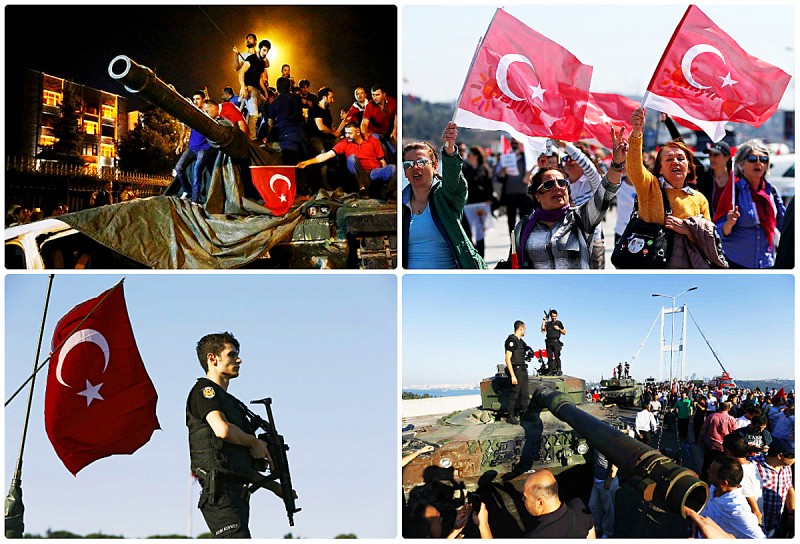
Avenging confrontations
A chance for the sharpest suppression on critics rose after the unsuccessful military coup on July 15th last year, when more than 240 people were killed and 2,000 injured. The government accused an Islamic theologian Fetulaha Gulen who holds the world network of schools and charities, and lives in the United States, as the organizer of rallies. "Gulen’s terrorist organization" (FETA) was declared an enemy of the state, at the same level with the Kurdish militant group PKK. The entire opposition was united against the attack, expecting that Erdogan would use this moment of national unity for reconciliation with the secular and liberal opposition. The hope was quickly extinguished when Erdogan's showed his true intention: that under the auspices of the state of emergency, country is cleansed of all critics, not only Gulienistas. The vengeful showdown with the democratic state began.
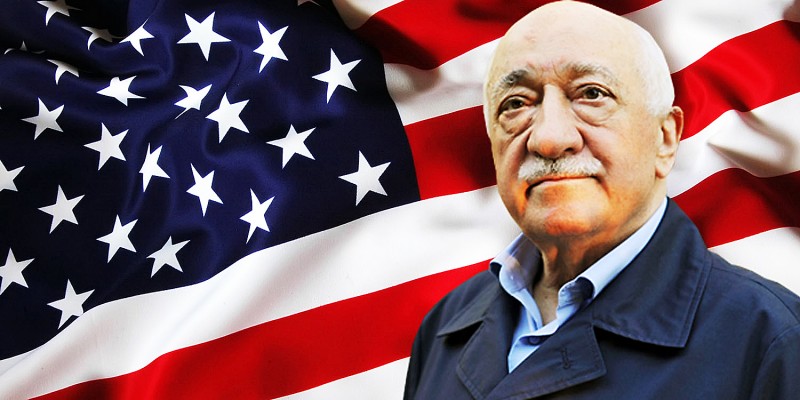
In one year, 150,000 people were dismissed or suspended from the army, public institutions and the private sector and 50,000 were arrested under the suspicion of supporting the coup. The governors of 47 provinces have been forced to resign, as well as the large number of rectors of Turkish universities. Officers, university professors, teachers, judges, state officials, journalists and even vendors of Baklava were being arrested. Before the start of mass arrests, 200,000 convicts were occupying the prisons, but 35,000 of them were urgently released to make room for the "enemies of the state". On Friday prayers, thousands of imams read sermons sent to them by the regime. The Turks were invited to denounce. Unfortunate ones that had the license plates with letters F or G were detained for interrogation as possible supporters of Fetulaha Gulen. Prosecutors have opened more than 1,800 cases against those who "insulted" the president. During this time, authorities seized many private companies and transferred as much as four billion dollars from the private sector to the state, which reminded many of the introduction of the Tax on Wealth from 1942 when Christians, especially Greeks, and Jews were under attack. On top of all, the regime has threatened to return the death penalty, which was abolished in 2002 as part of the EU accession process as a prerequisite for membership in the Council of Europe, under the excuse of the fight against "terrorists". Erdogan said that he would approve if the Parliament decided to do so, even though it would mean the official end of Turkey's EU ambitions.
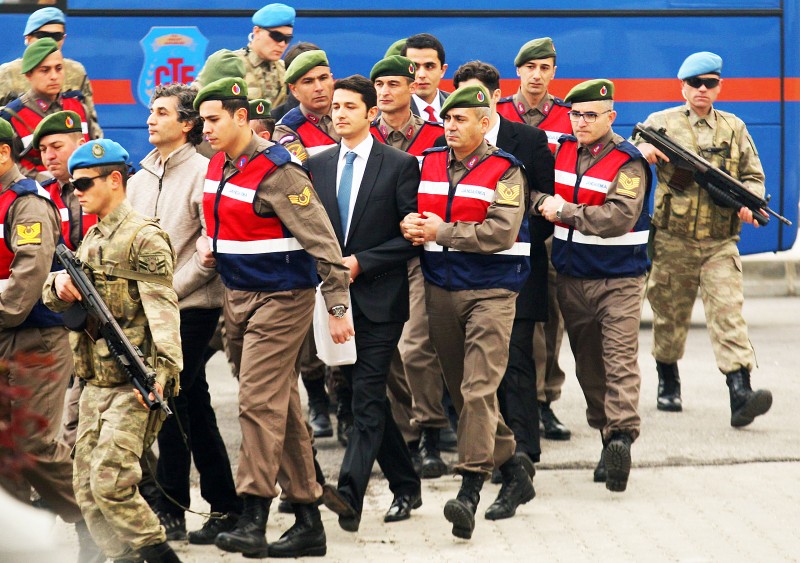
Dangerous divisions
The first serious warning to the regime was in May 2013, when demonstrations that began on Taksim Square in Istanbul spread throughout the whole country.[2] Erdogan fought back the only way he knew: by force. He used all available means to push 81.5 million Turks in his political box. He had forgotten the old wisdom, which says that the power can take everything from the people, but through power nothing can be given to them. While Erdogan is increasingly constantly increasing the level of power in his hands, muffled resistance is growing, drawing a sharp line of division throughout the country. The opponents of the oppression policy organized a spectacular march from Ankara to Istanbul in July, 350 kilometers long. Hundreds of thousands gathered at the final meeting point in Istanbul, the culmination of a three-week period during which they demanded that Erdogan turns to democratization or otherwise face a "revolt against injustice". [3] In less than a week, Erdogan resorted to the old recipe: a counter-rally. On the anniversary of the failed coup, in front of the the magnificent new presidential palace in Ankara, he organized a rally of his supporters. His message was clear: after all the firings and arrests, the support to the President and his "second war for independence" is still massive. The recognizable scenery of every authoritarian: lots of flags, with slogans of support, outbursts of glorification. People were allowed to travel by ferries and buses for free. Mobile phone companies were reminding their subscribers of the event. Turkey is dangerously dividing.
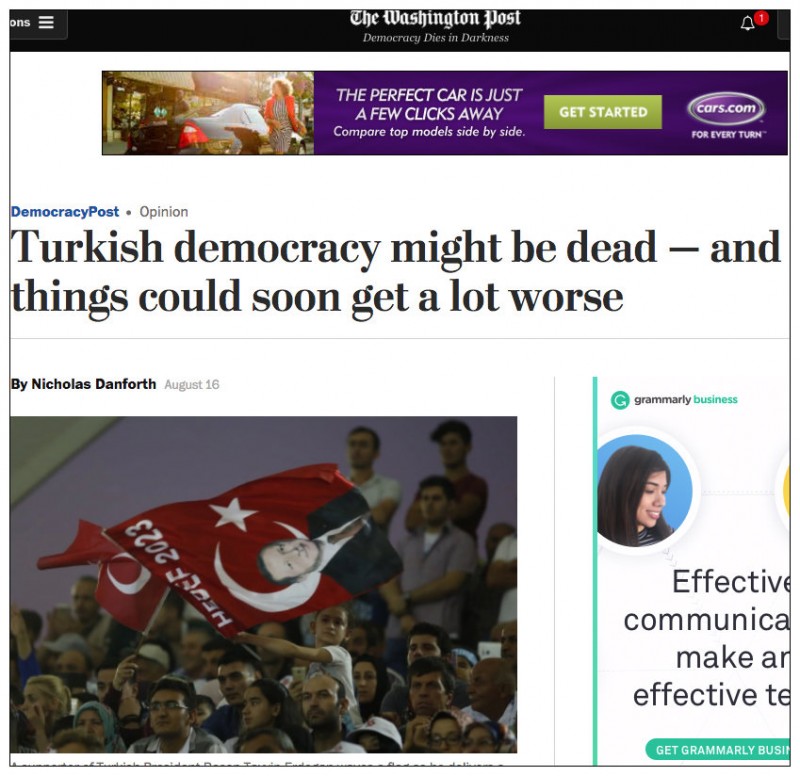
Islam
Return of Islam into the daily life, brought to Erdogan, a dedicated Muslim whose wife wears a hijab, some popularity, especially among the poor. However, aggressive Islamization worries the liberal circles who were stunned by Erdogan's proposal that the flight attendants in the national Turkish Airlines stop using lipstick in order to look more “Islamic”. According to data from the Directorate of Religious Affairs (Diyanet), before 2015 and Turkey built 8,985 mosques.[4] At the same time, parallelly with the growth of general intolerance, voices to convert the famous Istanbul's Hagia Sofia into a mosque again, are becoming louder. In the monastery of Sumela, in Trabzon, Orthodox liturgy is prohibited. Small number of Greek Orthodox groups need a special permit to hold services in their churches - a grim reminder of the pressures of the Muslims on Christians since the mid-7th century to the present, especially after the fall of Constantinople in 1453. Gradual Islamization of Turkish domestic and foreign policy, one of Erdogan and his AKP’s priorities since 2011, reflected on the choice of allies around the world. Gradually, and especially since the outbreak of the war in Syria, there is a growing number of various extremist Islamist formations Turkey allied with.
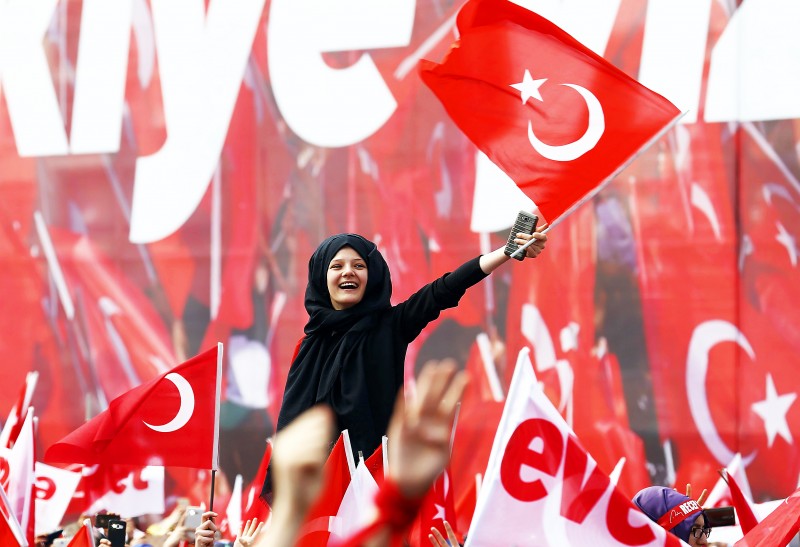
Islamization Agenda has not only split Turkey into two dangerous blocks, but also led to charges from the West allies that Turkey has given a pass to hundreds of European jihadists who went to Syria to join the Islamic State and that it supports radical Islamist groups in certain ways.
What was persistently denied by Ankara, in August 2016 was officially confirmed by the German Government: Turkey has for years worked with the Islamist militant groups, supporting organizations in the Middle East. This confidential report of the Ministry of Interior was acquired by the state television ARD. The fact that Ankara colluded with the Muslim Brotherhood in Egypt, Hamas in Gaza and the Islamist opposition groups in Syria, hasn’t come as much of surprise to anyone.
The truth that Erdogan was trying to cover up, had to come to the surface. In the West, the number of those against Turkey as such an “ally” became larger. There were even some requests to expel Turkey from NATO.
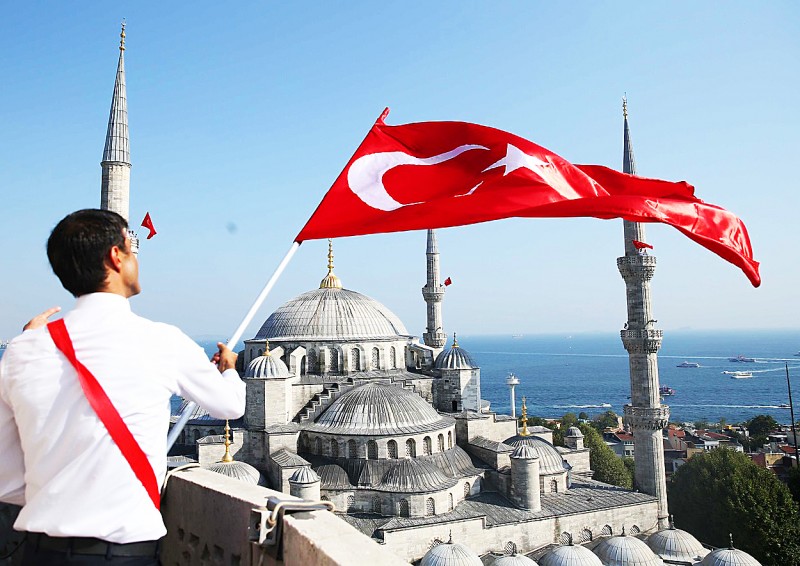
RELYING ON NATIONALISM
As a populist, Erdogan opposes liberal democracy-which makes him no different from a collection of similar leaders around Europe and Latin America. What he is distinguishable for, is the fact that the voters of the populists around Europe are dissatisfied with the political establishment, while In Turkey he is chosen by the majority of the electorate. The secret is in the combination of populism and nationalism. Erdogan is an authoritarian nationalist which makes him a member of a smaller group of the current world leaders. He encourages Turkish nationalism and, possibly, that is his only left affinity with Kemal Ataturk. [5]
The price to pay is again on Kurds which is a proof of his systematic regression. As a Prime Minister, he scored a huge point when he opened a dialogue with Kurds and Kurdistan Workers’ Party (PKK), with whom warfare on the southeast of Turkey lasted for three decades and took 40000 victims. After the West’s interference he gave up on death penalty for the arrested leader of PKK, Abdullah Ocalan, who supported the negotiations while serving a life sentence. The truce lasted for two years, until in 2015, for his own selfish cause, Erdogan influenced the renewal of conflict.
In the elections, his party did not succeed in winning the absolute majority necessary to change the Constitution. What got into Erdogan’s way was the pro-Kurdish Peoples’ Democratic Party (HDP) which managed to cross the necessary 10% to enter the Parliament and thus become the second strongest party in the country. Enraged, Erdogan had thousands of Kurdish politicians arrested. Among the prisoners was the leader of HDP Selahattin Demirtaş, charged with terrorism. In order to win back votes for AKP (Justice and Development Party), the president stirred up Turkish nationalism presenting Kurds as the only culprits. The renewal of conflict with Kurds was inevitable.
Terrorism started shaking Turkey again. Kurdistan Freedom Hawks, a militant group within PKK, was responsible for 38 deaths next to Besiktas stadium in Istanbul, as well as the bomber attack that took 37 lives in Ankara. [6]
The price for the nationalism in the north of Anatolia was paid by another minority group Alevis, who make up between the tenth and the fifth of the Turkish 74-million population. These Muslims, whose religion is a combination of Sunnism, Shiism, Sufism and the local tradition, perceive themselves as a cultural identity, rather than a religion in its true form. Unlike the secularists who see Erdogan as an islamist, Alevis see him as an explicit, intolerant Sunni. And this was not always the case. In 2007, Erdogan started his “opening up towards Alevis”, which was viewed by many as a challenge for a mono-cultural and monotheistic national identity promoted by the fathers of the Republic. The ones who consider that a true citizen is a Turk, not a Kurd, and who is, no matter the religious preferences, a Sunni, not Alevi.
“We are all citizens of the Republic of Turkey,” stated Erdogan in front of a group of Alevis in February 2008. “We are twins without discrimination among us.” A decade later, the Alevis’ so called “cemevi”-cultural activities centers-are being closed. From a pragmatic politician, who was ready to open a dialogue with Kurds, Erdogan ended up being a strict nationalist. The Directorate for Religious Affairs, which last year had 1.8-billion-dollar budget-more than most ministries-, strictly encourages Sunni islamization. The ruling AKP lacks the readiness to accept diversity.

The Grieving Army
During the Republic rule, the army performed four military attacks, which is why putting it under civil control was completely in accordance with the principles of a modern democratic country. But democracy was not Erdogan’s goal. To him, the army which is traditionally considered to be the guardian of the Ataturk’s secular legacy, poses a latent danger and a threat to the continuation of the islamization of the Turkish society. Having generals and admirals retired early, Erdogan put the second largest army in the NATO under his control, and a systematic mass purge followed after the unsuccessful coup during which the president barely escaped. In the beginning of this August, Erdogan authorized the endorsement of new commanders of the ground forces, the navy and the aviation, which is the biggest change after his victory on the April’s referendum. The only one kept was the Chief of the General Staff, Hulusi Akar, who was kidnapped by the plotters the first day of the last year’s unsuccessful coup, as well as the two out of three newly-appointed commanders.Last year, the government discharged 169 generals and admirals, almost half of the highest officers’ staff. Around 400 military envoys were repealed, but a great number did not come back due to their fear of repression. Around 7000 members of the army were arrested on the grounds of the alleged involvement with the coup, breach of the Constitution and an attempted assassination of Erdogan. Due to their ties with FETO, around 22000 members of the army were dismissed, most of which were students of military schools-16000.
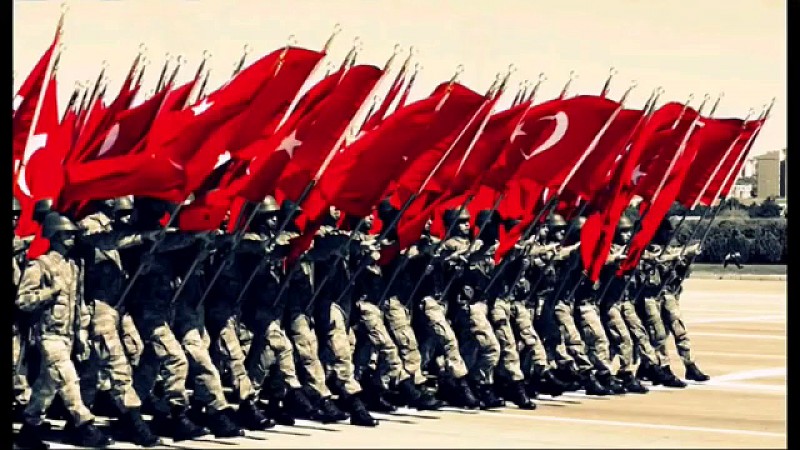
All this wrapped up the changes in the army, welcomed by the West as an act of civil control implementation, while at the same time there is fear due to the fact that the Turkish army is now left without a large number of experienced officers. The government is now trying to hire 25000 new recruits via newspapers ads, but many officers that are now imprisoned are the ones who used to control the key military activities, so it will take generations to compensate for the loss. Simultaneously, the influence of the radical groups such as ultra-nationalist Patriotic Party (Vatan Patrisi) or the islamist group SADAT is growing within the army. “The army is going through the hardest times in its history,” says the former Chief of the General Staff, Ilker Basbug. Erdogan is convinced that the eliminated secular generals are possibly ready for a new coup and that they were replaced by ‘the good Muslims’.”
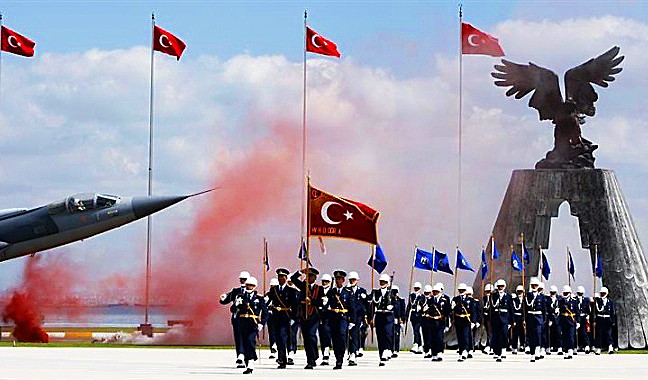
The Arrest of the Media
Erdogan’s relation to the media is a story on its own. Here too, the regressive trajectory of his politics is notable. During the first years of its rule, the government accepted the reforms course. The image of the Turkey from 1990s that occupied the first place in the world by the number of arrested journalists changed. In 2008, only one journalist was arrested.
Then in July of the same year, the government accused the secret nationalist organization of an attempted coup. A series of processes was opened. During the three of Erdogan’s PM mandates, every criticism vanished into thin air, but since 2014, when he was voted the President, he has expressed his authoritarian attitude very often in relation to the media, shutting down newspapers, changing the editorial staff of prominent newspapers, such as Zaman, closing TV and radio stations and web portals. At one point he even tried to ban Facebook. [7]
Pressure on the media dramatically increased after the attempted Coup on 15th July last year. Just before the coup, a special law was passed. Thousands of private educational institutions, media organizations and publishers under the suspicion of being related to Gulen’s movement were closed. Many journalists were accused of supporting FETO. Another wave of arrests succeeded, taking Turkey back to the top of the list in the world for the number of imprisoned journalists. Confirming that he turned his back at Europe, Erdogan organized Public Order forces to break into the newsroom of the respectable Hurriyet. Then he closed one of the symbols of Kemal Pasha’s times: at the end of last year in a police action, the holy grail of Turkish journalism Cumhuriyet was shut down, founded only a year after the Proclamation of Republic. Journalists were arrested after the newspaper published an article in which it claimed and supported by the evidence that the National Intelligence Organization (MIT) secretly delivered weapons to Syria along with humanitarian aid.
Shutting the newspaper belonging to the biggest opposition party, the Republican People’s Party, whose member was Ataturk himself, is the confirmation of the fact that in today’s Turkey editors and authors can easily end up in prison, as well as the readers who read the “wrong newspaper”, can easily lose their job
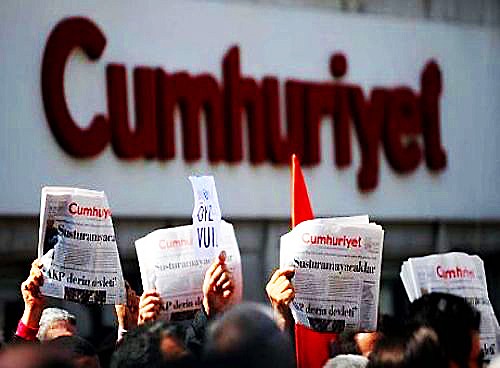
In the big purge that the president Recep Tayyip Erdogan started after the unsuccessful state coup, the favorite target of the regime are journalists. Three journalist agencies, 16 TV stations, 23 radio stations, 45 periodicals, 15 magazines and 29 publishers were closed. According to the data offered by the Committee for the protection of Journalists, at the end of 2016, 81 journalists were sent to prisons, while Turkish opposition media sources the ones Erdogan still hasn’t silenced, estimate that there are at least 150 of them. The government in Ankara thinks they can break all laws and conventions, be it national or international. Instructed by the President, the Prime Minister Binali Yildirim, rejected all the criticism coming from the USA and the EU about the threatened media freedoms and stated that “Turkey won’t kneel.” At the end of July, the Turkish court released seven journalists of the 93-year old Cumhuriyet, though the four of the most respectable editors remained behind the bars. They were accused of the cooperating with the ‘terrorists’, which is, after the rebellious Kurds, the president’s favorite marking for everyone he suspects has anything to do with the last year’s attempted coup.
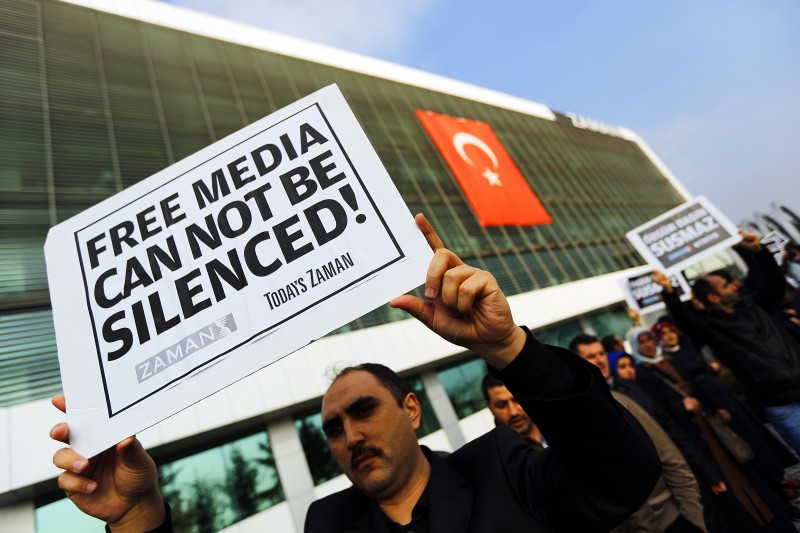
THE CONFLICTED DIPLOMACY
For a defiantly long period of time he forbade the Americans to use the big air base Incirlik in the east of the country and thus disrupted the cooperation with Washington and other members of the NATO in which Turkey has the second largest army. “Unreliable ally” is how the West perceives him.With his “damn Europe” attitude he jeopardized his relations with the EU. He shot down Russian aircraft above Syria. Only after the serious sanctions imposed by Moscow did he accept to publicly apologize for something for the first time and make a turn of cordiality towards Vladimir Putin. He ruined the relations with the Syrian president Bashar al-Assad whom he is obsessively trying to dethrone. He sent soldiers to Syria, but not as a member of international coalition helping the fight against the Islamic State, but in order to prevent Syrian Kurds from making territorial and all other kinds of contacts around Iraq and Turkey. The military interference in Syria turned Turkey into a target for Islamic terrorists, which also contributed to its inner destabilization.
As an active promoter of Sunni Islam he ruined the relations with Iraq and Iran which are mostly Shi’a. His support to the conservative Sunni Muslim Brotherhood in Egypt resulted in termination of relations with Cairo. When it comes to Israel, at one moment he closes the relations, while at the other, he stabilizes them, once more confirming his own vain caprice.
Either led by the desire to consolidate his reign or the strong belief that humanitarian organizations help his opponents, he approved the arrest of the foreign humanitarians in the southeast of the country who were in charge of the distribution of the essential goods to the Syrians across the border. The regime picks on different non-government organizations too, especially American, for Erdogan cannot forgive the Americans’ lack of readiness to deliver Fetullah Gulen.
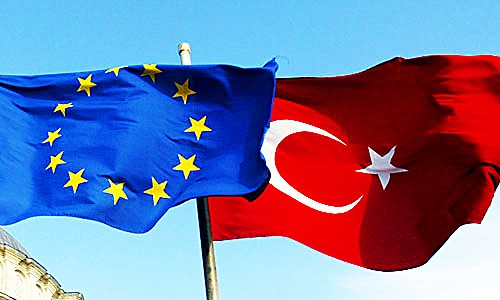
THE CONFLICT WITH THE GERMANS
Erdogan skillfully used the migrant crisis. Constantly threatening that he would let three million Syrian refugees from Turkey to Europe, he ensured 3 billion euros, as well as the requests to speed up Turkey’s process of becoming a candidate to enter the EU. He requested visa liberalization and after not getting it, he opened another diplomatic battlefront.
Erdogan accused Europe of being “fascist and cruel” threatening with reconsideration of relations with the EU, about which Ankara is being less and less enthusiastic. The target of the attack is Germany, from whom he requests an explanation as to why it gave asylum to the former officers of the Turkish army and other officials accused of being involved in the unsuccessful coup. Ankara does not forgive the fact that in March, 30000 Kurds in Frankfurt protested shouting “Erdogan is a terrorist” and “Freedom for Ocalan”, Abdullah Ocalan the former leader of the Kurdistan Workers’ Party (PKK) who is serving a life sentence in Turkey. Berlin is not backing off. Just before the April’s referendum, the German (and Dutch) government forbade the ministers from AKP to call up three million Turks living in Germany. This prohibition enraged Erdogan and disrupted the relations with the EU, especially with Berlin who was accused of using the “Nazi methods”.
“Turkey is not a country that you can push and pull around, nor a country whose citizens can be pulled on the ground,” said the President angrily and openly threatened: “If Europe continues this way, no European, in any part of the world, will be able to walk the streets freely.”
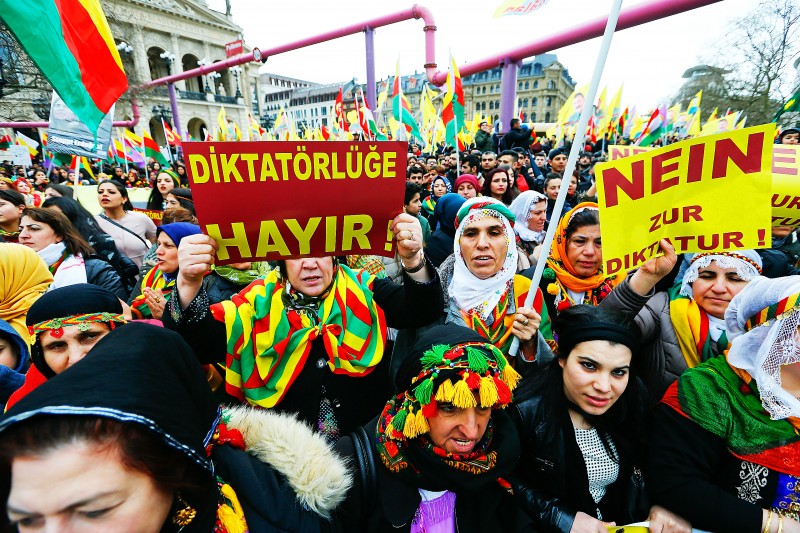
The affair temporarily tranquilized, but the German ministers of foreign affairs, finance and justice advised their citizens not to travel to Turkey this summer nor start a business there.It was a serious warning considering that Germany is its biggest trade partner and that more than 3.3 million Germans visited Turkey last year. Erdogan is not backing off either. “I remind my German friends and the whole world that you cannot blame it on Turkey. You have no power to scare us with such things.” Recently he was very explicit: “I don’t listen to Hans or Georg. I listen to Ahmed, Mehmed, Hassan, Hussain, Aisha, Fatma and Hatija.” His followers were exalted.
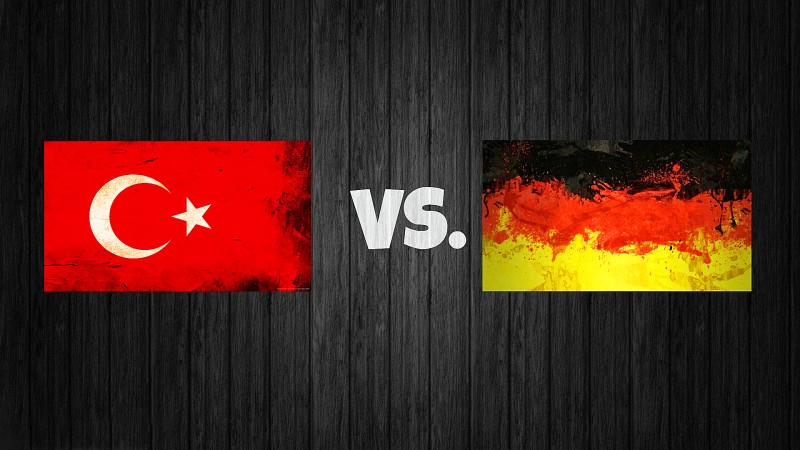
THE UNFORSEEBLE FUTURE
In the newer history Turkey went through hard times. The urban guerilla between the left and the right wing in the 1970s. The explosion of Kurdish separatism in 1990s. No matter how brutal the methods of its confrontation were, including military coups and police actions, the army preserved Turkey from implosion. Erdogan changed a lot of things. He became the president, but de facto the prime minister and the leader of the Justice and Development Party too. That is how he created two Turkeys. The first-conservative, rural, uneducated and sunk into Islam-believing it lives in heaven. The second-liberal, secular, urban, educated, Kurds and Alevis believing they live in hell.
Recep Tayyip Erdogan is determined to give up on democracy. He does not even care when the leader of the biggest opposition party Republican People’s Party (whose member was Ataturk himself) warns: “We don’t want the rule of one man, it’s an authoritarian regime.” But Erdogan might not be the source of the problems in Turkey. It could rather be the petrified cycle of repression and revanchism that seems to never end.
